Blog: Democracy in Transition
Leading the debate on the future of democracy: Regular updates from the 2015 Democracy in Transition conference in Melbourne
The 2015 “Democracy in Transition” conference, hosted by the Melbourne School of Government, brings together change-makers from around the world to explore the challenges and opportunities that democracies are facing in the 21st century. Follow this blog for all the latest developments.
Want to join the discussion? Have your say on Twitter using the hashtag #MSoGDemocracy
8 Dec 2015
and that’s a wrap. thanks for joining us
We’ve had a fantastic two days of debate and discussion here at the Melbourne School of Government’s 2015 Democracy in Transition conference. Thanks for following this blog. We hope you enjoyed it!
We wouldn’t have been able to bring you this blog without the hard work of our dedicated team.
Your blogging team were:
Editor and Production: Roselina Press
Reporters: Aqsa Ali, Martin Bortz, Cassie DeFillipo, Chloe Duncan, Joanna Hanley, Luke Heemsbergen, Rebecca Hetherington, Eleanor Kennedy, Roselina Press, Sophie Reid, Rachel Robinson, Stephanie Smith
Social media: James Cahill, Cathy Harper, Molly Thrasher, Roselina Press, Susanna Woodward
Photography: Hao Wong
Pride Comes Before a Fall: Against Arrogance in Democracy
Parallel session: Beyond the liberal crisis – humble democracy or radical democracy
Widespread self-absorption and self-obsession are among several symptoms of a comprehensive crisis of democracy, argues Dr Jakub Nalichowski from University of Wroclaw in Poland. Emerging from a glorification of career and consumption, this pathology of personality feeds into growing social trends of narcissism, and spreading stress and depression. This contrasts with a trend toward authoritarian adherence to traditional values, which encourages aggressive nationalism, populism and terrorism.
These two opposing trends are accompanied by alienation of the political system, of the sciences, and of the knowledge economy. The root cause of these problems is a transformation of capitalism toward overproduction and overconsumption, according to Dr Nalichowski. This “indifferent imperialism” devastates the environment, social relations and emotional life. But deliberative democracy presents a panacea for these ills. It can highlight that development of knowledge is a social process where people interact to deal with problems.
Dr Christopher Hobson from Waseda University in Japan takes up the theme of hubris and narcissism, asking how we can consider democracy from a frame of humility. Although humility is no longer as trendy a virtue as it once was, it can provide a platform for compassion and mercy. The goal is to develop an ethos that is “more other regarding, more meditative, and less arrogant” through properly acknowledging the limits of humans as individuals, and of democracy.
But there are difficulties in this approach. Firstly, how to promote the importance of being humble, while at the same time remaining humble? Secondly, placing value on humility can easily slide into passiveness and meekness. There is a danger of entrenching hierarchy. But getting the balance right has great potential benefits. Humility is a value present in many world religions, as well as being accessible from a secular viewpoint. It provides a starting point for integrating the diversity of views within a democracy. A certain arrogance of democracy often creates an overconfidence in the possibility of change, that sours to pessimism and despair when change is not straightforward or immediately successful.
“Democracy is ultimately an interplay between democracy as an ideal and democracy as a practice, and there will always be a gap between,” Dr Hobson said. A more humble approach will temper disappointment and cynicism.
Reporter: Sophie Reid
Problems and Paradoxes in US and Scottish Democracies
Parallel session: Questioning “we the people” democratically
This session explored problems and paradoxes in American and Scottish democracies. Dr Timothy Lynch of the University of Melbourne explored the problem of democracy in the political development of the United States. A number of arguments were advanced:
- If people are not angels, then government must control the governed before controlling itself.
- Attempts to solve the problem draw on a science of politics that attempts to negate the human dimension by introducing divisions of power, and by creating checks and balances making political power difficult to locate in any one person or institution.
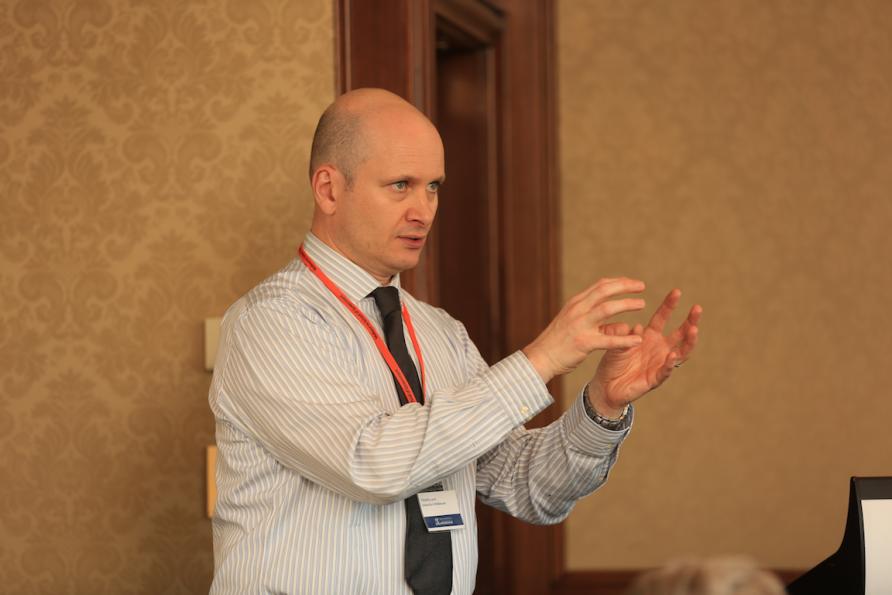
- The United States constitution seeks to negate tyranny, which may result in a tyranny of the masses. The United States constitution also seeks to promote virtue, though this may not be achieved.
- Paradoxes abound: federalists are anti-federalism, anti-federalists are pro-federalism, Republicans favour democracy, Democrats favour republicanism.
- Democrats have empowered the least democratic branch of government being the judiciary which at its highest level is comprised of nine unelected lawyers.
- The constitution is a legal fiction that provides political stability in an otherwise geographically, culturally and economically chaotic context.
- And finally, the US is a republic before it is a democracy.
Thomas Lundberg, Lecturer in the School of Social and Political Sciences at the University of Glasgow, discussed the Scottish referendum for independence held in September 2014. Critically, Lundberg sees the Yes Campaign as a social movement whose objective is greater than achieving independence: it is to realise a higher quality of democracy in Scotland. This helps explain why the campaign continues after the referendum was lost, albeit by 5% of the vote. Lundberg maintains that the referendum experience has deepened the quality of democracy in Scotland while creating greater disconnection from UK politics and the Westminster system. Looking forward, although the Scottish National Party (SNP) championed the failed Yes Campaign, party membership has quadrupled since the referendum which suggests the social movement may continue as new phases of contention and opportunities for insurgents and their opponents arise.
let’s fix democracy
Democracies are facing a number of 21st century challenges ... can we put our heads together and find solutions?
Comedian and radio host George McEnroe invited attendees to spend the final hour of the Democracy in Transition conference coming up with remedies to fix* democracy’s ills.
Joined on the stage by former President and Prime Minister of East Timor Xanana Gusmao, Dr Sara Bice of the Melbourne School of Goverment, and Professor Shamsul Haque of the National University of Singapore, George McEnroe led a spirited and not-so-serious debate about ways to improve democracy – in Australia and abroad.
Some highlights:
- “Democracy is no longer sexy. We no longer appreciate it when we have it,” Dr Bice quipped. “So how do we get community interested in democracy?”
- George McEnroe asks Xanana Gusmao, “how would you fix democracy?”
“I can’t”, he deadpans. - We are seeing “political apathy, the disinterest of people in a globalised world ... there is political infantilisation”, Professor Shamsul Haque said.
*We can’t guarantee that we actually fixed democracy.
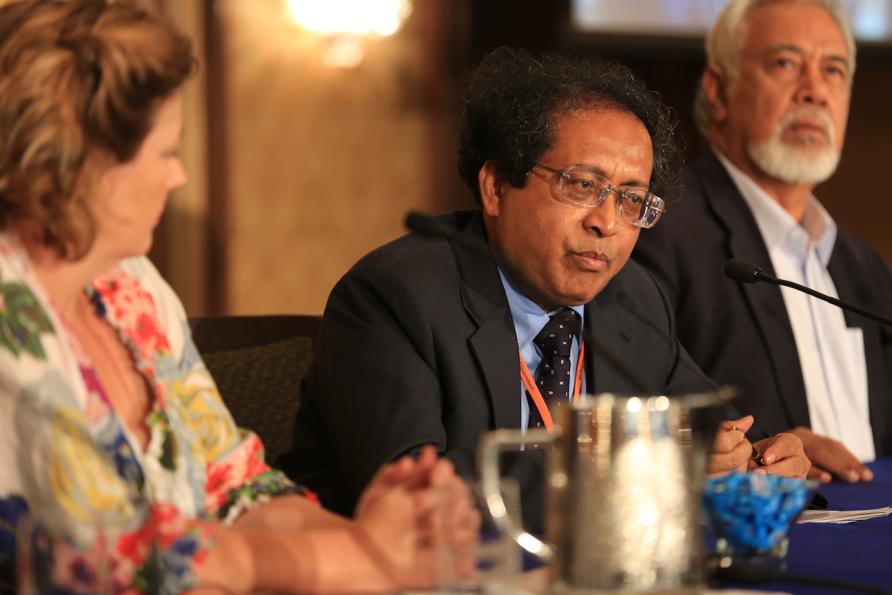
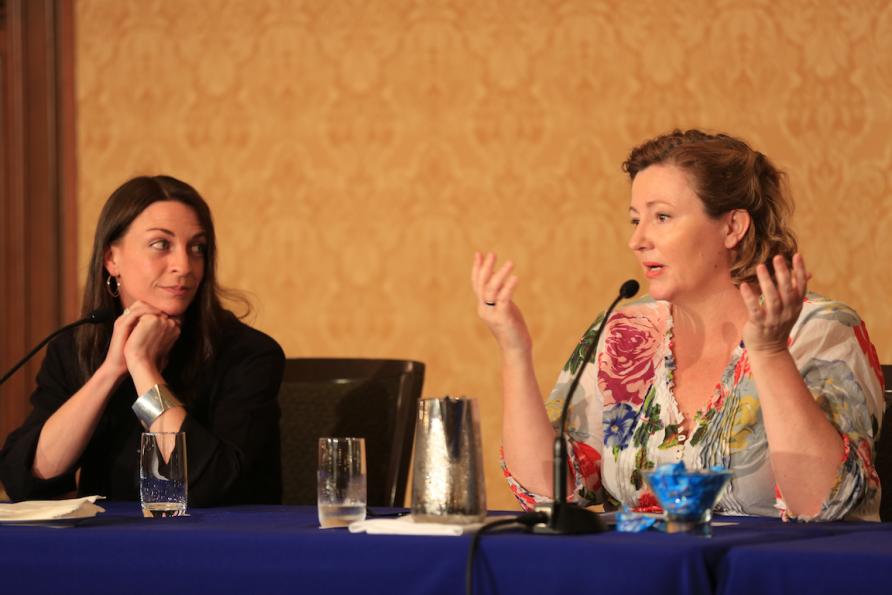
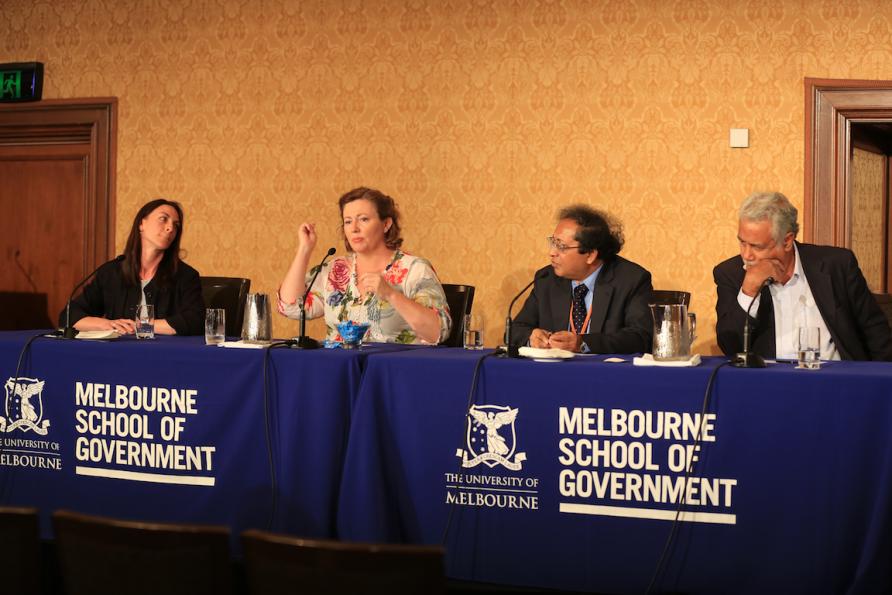
democracy post-war: no silver bullet, or one-size fits all solution
Parallel session: Politics at war’s end – working out order and legitimacy in the ruins of conflict
Dr Astri Suhrke from the Australia National University spoke to the audience about the election process in Afghanistan in 2014. Despite much international intervention, the election process was unsuccessful, marred by violence, fraud and the results being set aside for a controversial power-sharing arrangement which raised questions as to whether, given the high level of international intervention, the Afghanistan experience could/should be viewed as a democratic project gone astray.
Whilst offering a number of perspectives on why the democratic process failed in Afghanistan, Dr Suhrke referred to Charles Tilly who compared democracy to being like a lake that can expand and contract (flood and drought), but it has the structural capability to handle those situations. Dr Suhrke highlighted how these structures were fundamentally missing in Afghanistan in 2014 to allow the democratic process to be a successful one.
To this end, Dr Suhrke highlighted how institutions themselves can shape the outcome. After 30 years of conflict, Afghanistan was a highly controversial environment in which, Afghanistan may have benefited from a parliamentary system that promotes a coalition, rather than a powerful Presidential system as was proposed. The Parliament itself had little financial power, being heavily reliant on external donor funding which weakened it as an institution. The parties were also weak, with people running as individuals.
Where these main instruments or structures are weak, then the democratic project may also be weakened. Dr Suhrke highlighted that democracy should not just be understood and considered in terms of output, but also as a process.
Charmaine Rodrigues, former UNDP Global Governance & Peace building specialist, used her wealth of experience working with the United Nations to respond to the topic. Ms Rodrigues acknowledged that responses to conflict and democracy building require a long-term focus with particular focus on the process itself. Focus on short-term goals, with a rush toward stability and ending conflict at all costs, is not always the best approach and may actually mean we miss opportunities for transformation. It is not enough to simply promote democratic government and sit back hoping for the best and that people will be able to work it out, without giving sufficient attention to proper problem analysis.
Ms Rodrigues also highlighted that solutions have at times given insufficient attention to politics and people, being focused on technical institution building that is about process, not people. She also reiterated that there is no silver bullet, or one-size fits all solution to many of these very complex situations and by giving voice and agency back to the politics and people, then we may be able to promote real solutions that are suited and responsive to each individual context.
Ms Rodrigues concluded by highlighting that elections should not be used as a proxy for democracy, emphasising long-term views to finding solutions.
Reporter: Joanna Hanley
transitional justice and democratic transition
Parallel session: Redress in divided societies – space to reconcile or space to argue?
This session explored the interesting intersection between liberal democratic ideals and transitional justice frameworks when seeking redress in divided societies.
Thomas Obel Hansen of the United States International University in Nairobi, Kenya, recently wrote on an evolution in transitional justice that challenges many of the underlying assumptions that characterise its precedents.
This includes the association of transitional justice with democratic transition as a tool to advance or consolidate democratisation. Based on Latin American and Eastern European experiences of the 1980s, this posits a liberal “window of opportunity” in which the newly-elected democratic regime is the main actor facilitating state-led reparation.
But Dr Obel Hanson argued that the contemporary field is occupied by pre- and post-transition analysis, and recognises that rather than being derivative “these justice tools can somehow help initiate these transitions”. Importantly pre-transition processes can contribute to redress or reparation without the advent of regime shift. This creates greater space for International and Civil Society actors and re-situates the emphasis upon goals of peace-building rather than prescriptive liberal ideals of justice.
This more adaptive interpretation of transitional justice was taken up by Dr Sarah Maddison of the University of Melbourne, in discussing her research into divided societies of Guatemala, Australia South Africa and Northern Ireland.
This research undertook an “agonistic reconciliation” approach to conflict resolution analysis and rejects the emphasis on consensus in many transitional justice frameworks. In the latter, consensus is normatively upheld as a democratic ideal with agreement sought on the sequence, cause and accountability for events in conflict.
Furthermore Dr Maddison argued, “these [consensus initiatives] are often framed through various transitional justice mechanisms even when there is no evident transition taking place, such as Australia, and these mechanisms are often established to seek ideas of truth, a singular truth about the past”. This often serves elite interests in maintaining the status quo and singular narrative around justice and redress.
In contrast, Agonistic reconciliation may enumerate plural experiences and memories of historical violence and injustice. This is seen as pragmatic in those contexts where distinctions between perpetrator/victim/bystander may prove ambiguous. An agonistic approach seeks to turn enemies into adversaries and create debate and engagement.
Although this may challenge democratic processes when parties maintain an offensive or violent agenda, Dr Maddison said the persistence of such divergent views exposes “the problem that transitional justice has established for us [being] the idea that we might get to the point where we have transitioned”.
Rather agnostic reconciliation allows transitional justice to be constructed as an ongoing process occurring at and across multiple societal levels and reflecting the reality that “these processes are open-ended and complex”.
Reporter: Stephanie Smith

Honorary Doctorate awarded to Xanana Gusmão

The Honorable Kay Rala Xanana Gusmão, the former President and Prime Minister of East Timor, has been awarded an honorary doctorate by the University of Melbourne’s Faculty of Arts.
Xanana Gusmão, widely regarded as the leader of East Timor’s struggle for freedom, was presented with the Doctor of Letters, honoris causa, during a special ceremony yesterday evening, as part of our Democracy in Transition conference.
ranjana kumari: women have a right to equal participation in politics
Parallel session: Popular resentment in the midst of democracy
Democracy is facing many internal and external challenges. Thitinan Pongsudhirak from Chulalangkorn University, Bangkok discussed the effects of military dictatorship on Thai politics where the country is ruled by the troika – the military, the monarchy and the bureaucracy. The democratisation process is marred as a market place for buying and selling votes, and the vicious coup cycle is ruling the country politics.
However, the new political party has been able to involve the masses in politics. The current phase is very uncertain as Thailand is a kingdom and a democracy is emerging out of that kingdom. The generals have promised to conduct elections by 2017, whereas the institutions and individuals related to crown are against elections which has given way to uncertainty. The democracy emerging from monarchy has to give space to the monarchy; only a compromise can bring stability. In the absence of any adjustment and compromises the country cannot have a stable future.
Ranjana Kumari, Director of Centre for Social Research in Delhi, India, considered exclusion as a threat to real essence of democracy – equality. She said that in India, the democratic process is structured in a way that excludes women from politics. The bill for 33% female representation has not been passed by the parliament for the last 17 years because of a strong opposition, and resentment, by the male parliamentarians. Women in India have been able to achieve 41% representation in the Panchaiati Raj (village level administration) as the political parties are not involved in the local government elections. The absence of half of the population from the government does not make the government democratic, said Dr Kumari. So to strike a balance it’s important to give women their right of equal representation in politics.
It’s important to give women their right of equal representation in politics.
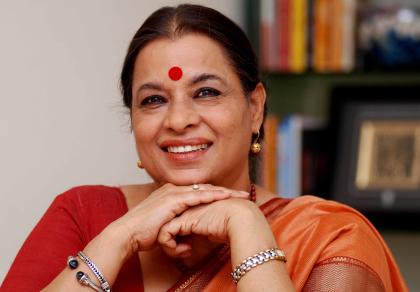
Erika Feller from the University on Melbourne talked about mass migration and forced displacement as one of the defining challenges to democratic principles. The Australian government considers cultural and ethnic diversity as its strength, but it has also wound back its many laws protecting the rights of asylum seekers and refugees in particular. Many refugee frameworks have been replaced by ministerial discretion, which is not subject to the checks and balances of judicial review. To be a good global governance partner, Australia must strike a balance between national security interests and the needs of genuine refugees.
Reporter: Aqsa Ali
“Democracy in transition” speakers in the media
Dr Mukulika Banerjee of the London School of Economics appeared on RN Drive with Patricia Karvelas last night, where she discussed why India excels at elections and why Indian citizens have a longstanding passion for the democratic process. Listen to the interview.
Sir Simon Hughes, former British MP, was interviewed on ABC’s The World about Islamic terrorism and why there is no simple solution to the extremism of groups such as the Islamic State. Watch the interview.
Privileging the local: democracy assistance in the real world
Parallel session: Aiding democrats? The challenges of international assistance in transition contexts
The importance of examining local contexts when giving democracy assistance was the focus of this session. Dr Wesley Morgan, Pacific Policy Advisor with Oxfam, began by explaining the complexities of Vanuatu’s democracy by using the recent political upheavals in Vanuatu to highlight the differences between local contexts and the universal, theoretical ideas of democracy that often govern international discourses of aid.
Of particular interest was the hybridity present in Vanuatu, which has been described by Miranda Forsyth as “the bird that flies with two wings”. One of these wings is the state government, which broadly follows Western expectations, and the other is the “kastom” governance, a traditional form of governance presided over by local chiefs that has come to be contrasted with a European “other” and is therefore tied to national identity.
Dr Jesse Dillon Savage of the University of Melbourne spoke from a political science perspective, examining the provision of democracy assistance and the role of the military in its effectiveness. He contrasted Georgia’s 2003 Rose Resolution with Armenia’s 2008 crisis, which both received USAID democracy assistance with very different outcomes. Georgia’s poorly-resourced military refused to assist the opposed government, while Armenia’s military, well-resourced and with a good relationship with the regime, agreed to subdue the opposition.
With this background, Dr Dillon Savage then explained the often contradictory research on the effectiveness of democracy assistance by testing the hypothesis that a well-funded military will not only negate the effectiveness of democracy assistance, but possibly make it worse. His results showed that once a country spends 4% or more of its GDP on the military, democracy assistance is likely to make the situation worse.
Both speakers focused on the need to take local contexts into consideration when giving democracy assistance, but Dr Morgan focused on the benefits of democracy assistance, while Dr Dillon Savage suggested that democracy assistance in some instances is a waste of money, and may actually hinder democratisation.
This led to an interesting discussion on the relations between NGOs and the military; the balance between accepting undemocratic practices and working with them to improve society; and the possibility of democratic coups. Ultimately, however, the message was clear – the application of universal principles of democracy can only be useful if it is combined with real consideration of the central actors in the local context.
Reporter: Rebecca Hetherington
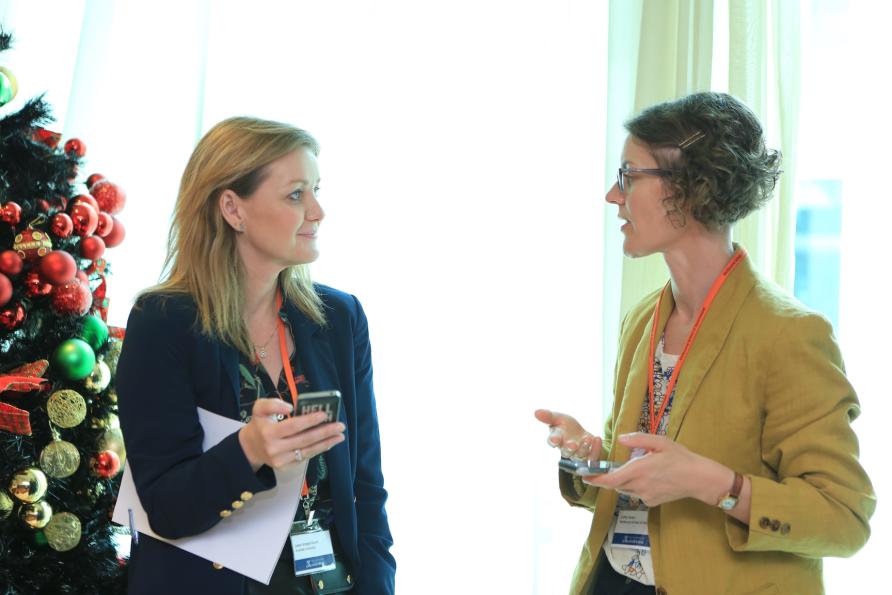
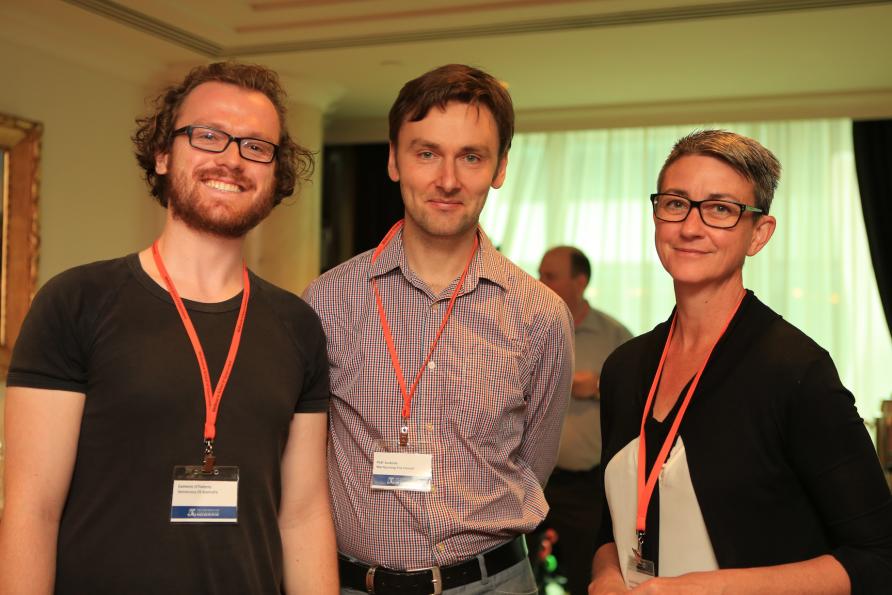
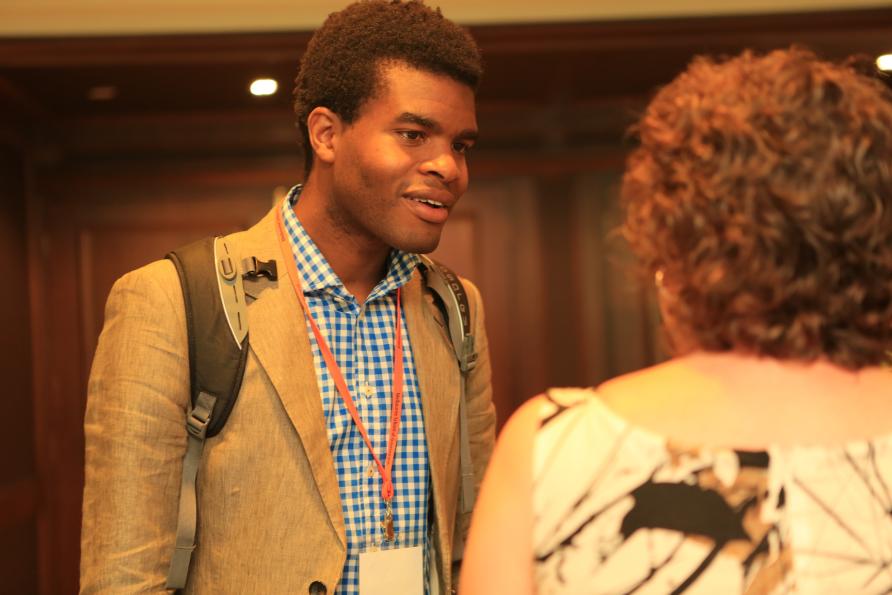
DEMANDING MORE FROM AUSTRALIAN FEDERALISM
Parallel session: Do central governments have too much power? Recharging local and regional communities
A panel of academics from Canberra, Queensland and Victoria today suggested that we must address the “narrative of failure” and demand more from Australia federalism.
Anne Tiernan of Griffith University issued a challenge to political leaders and public servants to get behind federal reform as we approach the December COAG meetings and set out the Reform of the Federation White Paper.
Panellists agreed that core challenges for the future of federalism involve the vertical fiscal imbalance, concerns of federal executive over-reach and emerging challenges in light of indigenous self-government.
Michael Crommelin AO, Zelman Cowen Professor of Law at the University of Melbourne, discussed the constitutional foundation of Australia’s federalism. Professor Crommelin, who recently co-authored a paper with Cheryl Saunders titled Reforming Australian Federal Democracy, expressed his confidence that – despite the considerable challenges – our Constitution provides a robust framework and solid foundation to reinvigorate our federal democracy.
Miranda Stewart of the Australian National University discussed the challenge of indigenous self-management in light of federal democracy. Professor Stewart shared data about the complex system of financial transfers supporting indigenous programs.
In order for our federal democracy to address indigenous representation and budgeting, Professor Stewart imagined substantial reform driven through “COAG or a similar process led by federal government in cooperation with the states”.
Dr Glenn Savage of the University of Melbourne discussed recent reforms to school education including the implementation of a national curriculum, national teaching standards and national testing. Reforms have led some to perceive education policy as an example of “coercive federalism”.
Using the example of education reform, Dr Savage issued a challenge. He said that the White Paper on the Reform of the Federation, “needs to harness the benefits of national reform and cooperation but also guard against over-reach and ensure intergovernmental cooperation remains representative and fair”.
Reporter: Rachel Robinson
organisational democracy: still alive but in critical condition
Parallel session: Organisational Democracy – Is it dead and buried?
According to panelists Jimmy Donaghey of Warwick Business School of London and Bill Harley of the Centre for Workplace Leadership at the University of Melbourne, organisational democracy is still alive but in critical condition.
Industrial democracy first emerged in the late 19th to early 20th century. It was seen as part of a political project: a new economic and social order where the orthodox power structure was modified and employees had both greater participation and a larger stake in the organisation.
It was a system where “rule by men” existed, and the employee could hold those in authority accountable. But the movement had a troubled beginning and failed to gain widespread popularity. It also rarely fully implemented in practice.
Associate Professor Donaghey and Professor Harley note that the popularity of organisational democracy has not been increasing in recent years. “If anything we have gone backwards in the last 100 years or so,” Professor Harley said.
Until the 1980s, calls for workforce democratic participation, an essential element of organised democracy, were widespread among scholars, unionists, and political reformers. Now, however, participation has been displaced by the concept of involvement, and the movement has stagnated. In its place are associational democracy organisations such as democratic societies, unions, and employer associations.
Associate Professor Donaghey and Professor Harley discussed the changing nature in worker representation, citing a continuing decline of union membership and coverage. NGOs with specific purposes are acting somewhat as substitutes for some groups of people, but the right of these NGOs to represent these workers is often under dispute.
Another topic of discussion was corporate social responsibility and how some organisations now participate in questionably unethical behaviours such as relocating to countries with fewer regulations and protections for worker’s rights. There is often little accountability for these multi-national corporations, and many have moved away from the goals of organisational democracy.
The panelists left attendees to ponder if organisational democracy can be realised in different settings via different mechanisms, who can legitimately make representative claims, what responsible capitalism looks like, and how organisational democracy can be brought back to life.
Reporter: Cassie DeFillipo
rethinking the corporation in democratic transition: the responsible company
The institutionalisation of social responsibility within corporations was the topic of conversation for the Lunch Plenary on Day 2. Dr. Sara Bice of the Melbourne School of Government said that the mandate of corporations to enter social spaces has “grown exponentially in the recent years” and produced a real “boundary issue with civil society” as companies are realising they must take on more responsibility.
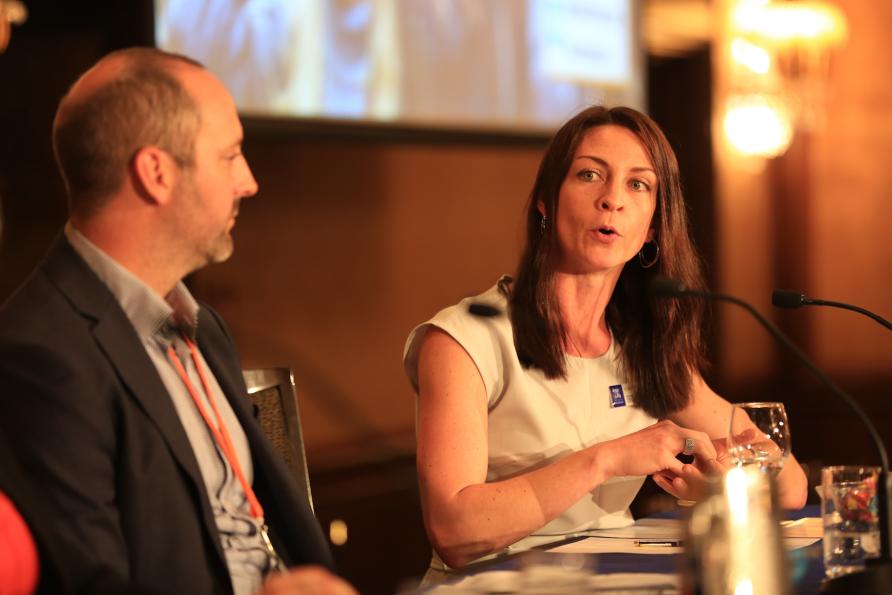
Providing a positive example of transgressing such boundaries, Michael Parks, General Manager of Governance, Integration and Reporting at Telstra explained how his company’s reconciliation action plan in Australia includes building capability and confidence, as well as infrastructure, as they expand telecommunications capacity in the Northern Territory. “Digital literacies”, including understanding privacy issues, he says, are important aspects of becoming connected.
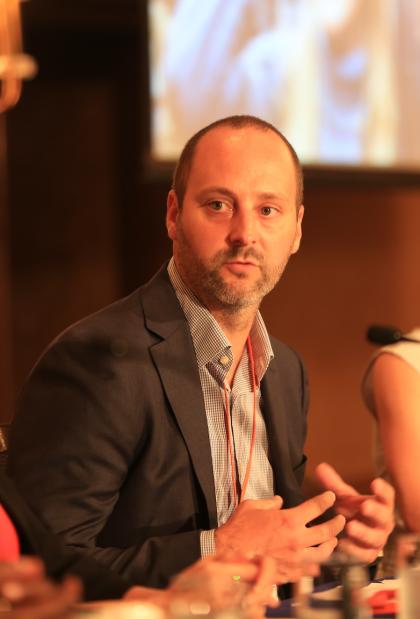
Audience questions reminded the panel of a company’s responsibility to its shareholders, and asked if we should encourage or demand changes to corporate law to continue to move forward. The response from ANZ Head of Corporate Sustainability Jane Nash was that under the current regime such activity “is what is expected of us” to maintain their “social licence to operate.”
Reporter: Luke Heemsbergen
Engagement within and between publics: Bridges and blockages
Parallel session: Engaging with Publics – Pushing the Boundaries of Deliberative Democracy
There is more to deliberative democracy than just citizen engagement, according to Dr Carolyn Hendriks of the Crawford School of Public Policy at the Australian National University.
Speaking on a panel with Dr Annie Bolitho from the University of Sydney and Dr Nicole Curato from The Centre for Deliberative Democracy and Global Governance at the University of Canberra, Dr Hendricks observed that the connections between engaged citizens and decision-makers may not always happen organically. Sometimes this coupling between citizens and decision-makers needs an intentional boost in order to be effective.
Dr Bolitho provided some insight into the difficulties of designing these processes. Drawing on her extensive experience of organising citizen participation initiatives for local and state governments, she observed that people often don’t understand what a really robust values discussion entails.
She presented a basic recipe for successful citizen deliberation, with three ingredients: strong framing of the issue, random stratified sample of participants, and empowerment to explore the issue. Both noted the need for support from political officials in order for deliberative innovations to have an impact. Dr Hendriks pointed out that a well-designed deliberative process would have little impact without leaders and champions interested in supporting the coupling process.
Dr Hendricks noted that “Democratic innovation needs people prepared to think outside the box, even if it is for self-interested reasons.”
Dr Curato presented a counterpoint to these fairly optimistic views, with a presentation on the ways that citizens can act to silence each other. Looking at civil society reactions to the recovery efforts after hurricane Haiyan devastated parts of the Philippines in 2013, she examined the ethical boundaries around dissent that emerge during times of crisis.
In times of humanitarian emergency, expressions of solidarity are a common reaction from civil society. But expressions of dissent also often emerge, such as criticising government responses to the crisis. The general aversion to politicising humanitarian disasters, however, means that in these circumstances government critics are often themselves subjects of criticism, labelled traitors or simply told “Shush, just help”.
But Dr Curato said that far from being traitors to the state in times of danger, these critics have an important role to play. They are “necessary to ensure the state of exemption does not become the rule.”
Reporter: Sophie Reid
Better outcomes: policy processes and public interest
Parallel Session: Reforming the policy process – how do we get better outcomes?
“Involving the community in both defining socio-economic challenges and aligning innovation is beneficial” was the conclusion of a study conducted by Roskilde University’s Lykke Ricard and the University of Melbourne’s Jenny Lewis.
Their research on insider and outsider understandings of policy challenges and views of innovation in the public sector in Copenhagen, Rotterdam and Barcelona emphasised the benefits of deliberative democracy.
This research highlighted striking similarities between insider and outsider views when political culture was shaped by the access of citizens to policy processes.
The Hon Tim Smith QC, former judge and current representative of the Accountability Round Table, also focused his presentation on conventions of democracy.
Mr Smith suggested the need to refocus on the principle of “Public Office, Public Trust” or the fiduciary relationship between members of parliament and the public. He shared his concern that public trust is compromised by professionalisation of the political trade; the absence of meaningful public policy debate; debate that is driven by factions; and concerns of deception, half truths and exaggeration in political process.
“As a nation, we’ve never been so educated, healthy or prosperous but something’s not working – confidence has never been lower and it’s never been harder to get things done”. Nicholas Reece, University of Melbourne and former political advisor expressed his reservations about the state of our democracy.
As a member of a deliberative budgeting process, Mr Reece provided insight into the way citizens can play a meaningful role in policy formation. Citizen juries are able to understand and solve specific and complex policy problems given the right tools and information.
Members of the audience suggested that citizen juries could be improved when juries are provided with adequate time and information and are able to incorporate experimentation, engagement and discussion opportunities outside the direct jury process.
But in order to be successful, deliberative processes need to be conducted in an environment of broader political stability.
The panel and audience were concerned about policy gridlock and a growing inability to address the long-term policy issues of the day. But there was confidence that a focus on good governance and deliberative processes have the potential to reinvigorate democracy for the future.
Reporter: Rachel Robinson
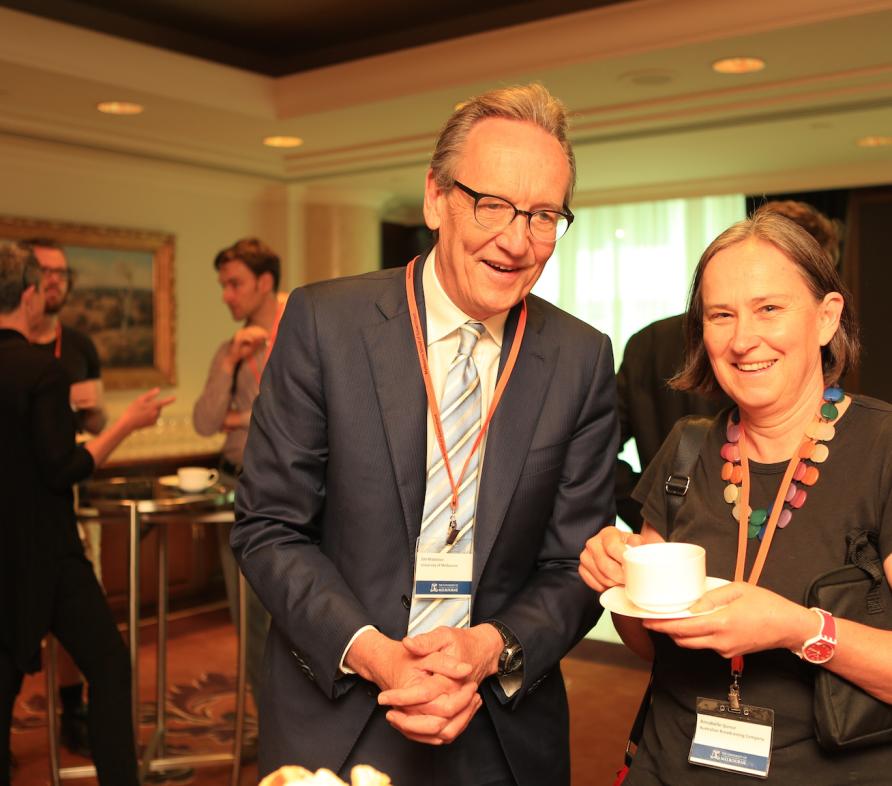
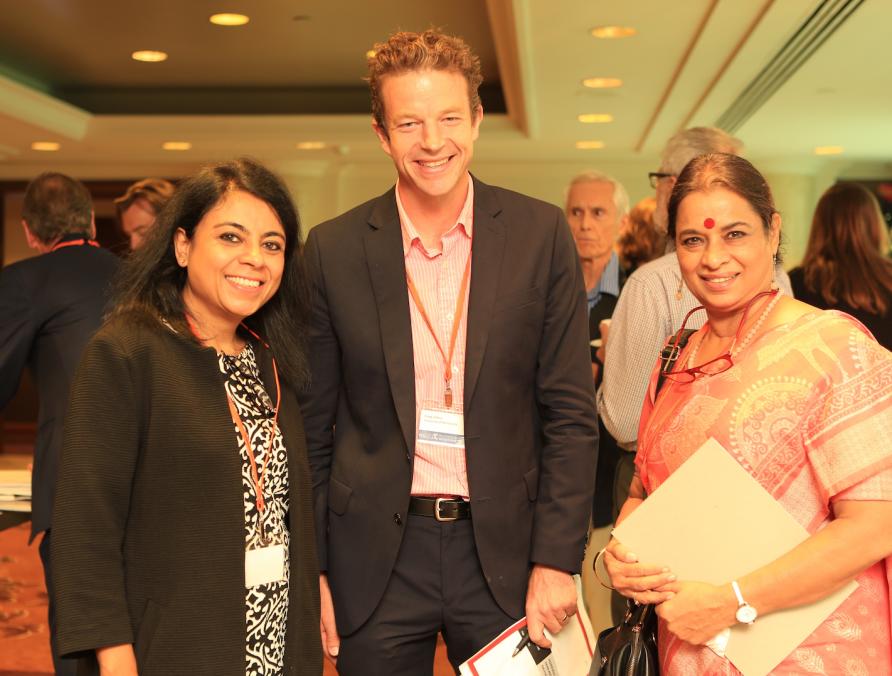
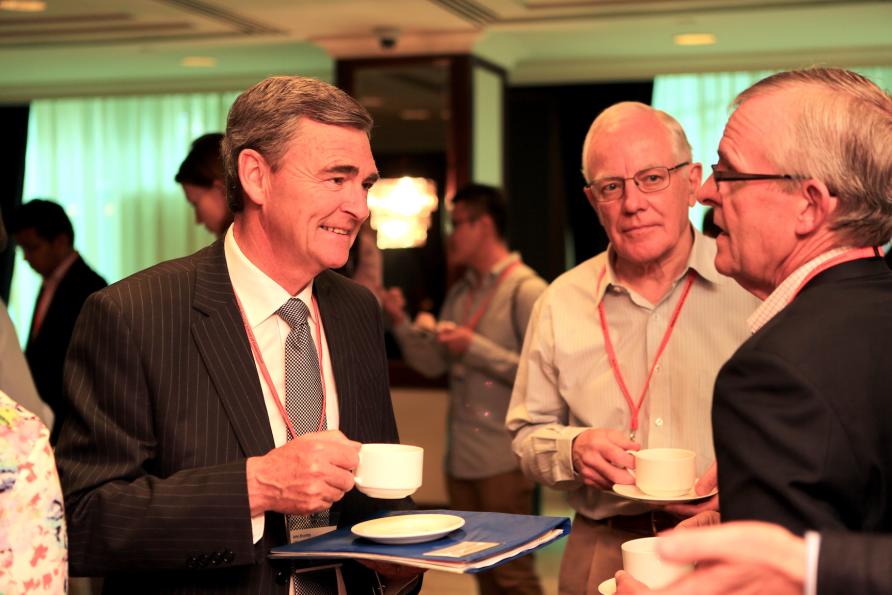
indigenous-state relations
Parallel session: How does Indigenous political organisation influence 21st Century conceptions of Western democratic ideals?
As promised by Panel Chair Dr Mark McMillan, Law Lecturer at the University of Melbourne, both speakers provided significant accounts of how Indigenous political organisation influences Western democratic ideals in the 21st Century.
Professor Steve Cornell, Director of the Udall Center for Studies in Public Policy at the University of Arizona, began by discussing the extensive historical precedent of intervention in the governance and governments of Indigenous peoples. Across the United States, Canada, Australia and New Zealand (CANZUS) this typically involved the promulgation of structures done generally “in the name of democracy”.
Such initiatives assumed traditional or cultural forms of governance were undemocratic. However Professor Cornell’s research has found these Indigenous systems were indeed democratic despite considerable variation in form.
In contrast, imposed governance structures are alien and lack legitimacy in failing to reflect local cultural values and practices. This can give rise to rent-seeking behavior and damaging “winner takes all” contests for limited resources. Professor Cornell promoted “organic democracies” as more viable, defined as “a reflection of the norms and values of the people being governed’’. Such forms of self-determined government have produced sustained improvement in Indigenous welfare in the United States, a phenomenon delineated in the Harvard Project on American Indian Economic Development, his seminal work co-authored with economist Joseph P. Kalt.
Second speaker Kirsty Gover, Co-Director of Melbourne Law School’s Indigenous Peoples in International and Comparative Law Research Program at the University of Melbourne, considered the puzzling case of Australian exceptionalism amongst the CANZUS states. Specifically, the absence of a Common Law “Honor of the Crown” Doctrine that conditions Government powers in relations with Indigenous Peoples.
As Dr Gover reflected, Mabo No.2 decision was an historic legal decision that failed to introduce the corollary fiduciary duty alongside recognition of Native Title as a vulnerable form of property rights. This speaks to the unique tension faced by Liberal Democratic Settler States “to grapple with and reconcile two forms of liberalism”. The first is the classic tenets of promoting and maintaining norms of equality and fair resource distribution. The second being the ideal of consent, unique to the “social contract” of democratic government.
In relation to Indigenous citizens, this is pressing as Indigenous consent regarding governance process and decision-making “is often palpably absent or seems implausible given the systemic injustice [that has characterized this relationship]”.
Many Indigenous claims have been stymied by objections of racial-discrimination or fail to gain traction through rights-based frameworks. As Dr Gover contended, the introduction of an “Honor of the Crown” Doctrine may introduce a new form of relationship between indigenous peoples and the state, one which codifies trust and obligations, and expands the democratic possibilities of governance in the Australian context.
Reporter: Stephanie Smith
democracy in 140 characters
Parallel session: The role of social media in renewing democracy
This session was chaired by Tim Dunlop of the Centre of Advancing Journalism at the University of Melbourne, and featured presentations from Nkwachuwkwu Orji of Institute of African Affairs at German Institute of Global Studies; Dr Sarah Bice of the Melbourne School of Government; and Tim Norton, Campaigns Manager at Save the Children Australia.
“What are the political effects of social media?” was the question that framed Dr Orji’s discussion. Drawing on his experience with the 2015 Nigerian elections, his answer was that social media can bring benefits in electoral processes by empowering citizens to be electoral observers.
Fact to blow your mind: Nigeria has 92,000,000 internet users. Coupled with Nigeria’s weak electoral processes, Dr Orji explained it was inevitable that social media would be used to strengthen the elections.
For many, when the terms “Twitter” and “democracy” are raised they think of the Arab Spring and the role of the social media platform in less democratic communities. But Dr Sara Bice reminded us that there are powerful applications for social media in established democracies as well.
This was told through the story of Twitter’s use in promoting awareness, community and resistance on the issue of coal seam gas. Coal seam gas campaigns, and the use of social media in those campaigns, reminds Dr Bice of one of the strengths of social media and our digitally-connected world: no matter how distant people may be geographically, we are no longer isolated or disconnected.
To summarise Tim Norton’s presentation in one word, it would be “reach”. That is, the amplified reach that social media affords. 30 years ago, Mr Norton said, “you used to go to town hall meetings and reach 200 people. But now I can spread a message to 100,000 people via Twitter.” So perhaps social media is less about renewal of democracy, and more about reformulation. “An increase in voice is not an increase in democracy,” Mr Norton said.
If this panel had been presented entirely in hashtags, the trending phrase would have been #tipoftheiceberg. Social media is rapidly changing and transforming all the time, so there still much to learn about its application in democracies.
Reporter: Eleanor Kennedy
xanana gusmao: democracy as a process
Xanana Gusmao approaches questions of legitimation by pointing out that “when we started the liberation struggle, we were Marxist-Leninist-Maoists” but that “after many many defeats … we came to the conclusion that we are making a suicidal act if we continue to be a revolutionary party”. To escape their own post-conflict mentality involved a process that was larger than holding free elections.
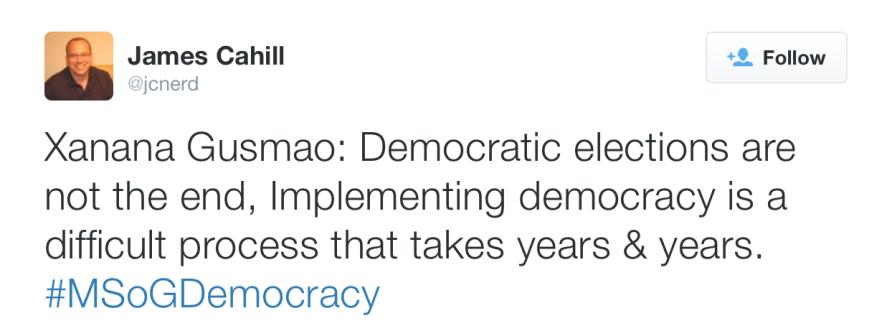
Gusmao says they began to “define democracy as a process, not as a end in itself”, which sometimes provided consternation to Western voices that were saying “if there are fair elections ... everything is good. All political life depends on elections”. Instead, he opines that democracy is a “a difficult process, a social process”, and an ongoing one. “We have to respect [the internal dynamics]” of each country concludes Gusmao, for if we don’t “democracy doesn’t’ solve anything at all”.
“the good life”: cultivating ambivalence in syria
When the Syrian uprisings began in 2011, why were so many Syrian civilians ambivalent towards the political discontent, and democratic hopes, that was brewing in the country – particularly among the youth? Professor Lisa Wedeen says that the “neoliberal autocracy” of the Assad regime created a “silent majority” in Syria who are invested in the status quo and fearful of challenging the regime. Neoliberal autocracy in Syria propagates the idea of “the good life” – comfort, materialism, market-mediated experiences – which distorts people’s political awareness and participation. “Neo-liberal autocracy also offered the promise of order. A way of blanketing over what might be considered incendiary differences,” says Professor Wedeen.
In light of the horrific, and brutal, ongoing war in Syria, it is easy to be disheartened. But Professor Wedeen encourages the audience not to forget the youthful hopes of those Syrians who first took to the streets to protest for their civic and political rights back in 2011. Their goals are an inspiration, and perhaps may still be realised – one day.
liberal democracy: still the main source of political legitimacy?
Dean Keping Yu of the School of Government at Peking University begins by asking “Is liberal democracy still the main source of political legitimacy?”
Yu says the West has “encountered great difficulties” attempting to export liberal democracy “to the non-Western world”, while at the same time “the great economic success of non-Western-style democracy in some countries ... is shaking up classical theories of democracy”.
He suggests that legitimacy in the 21st Century rests on good governance, defined as “the management process to maximise public interest”. Good governance provides an ideal political state pursued by all democratic governments, across political ideologies. All “governments seek better governance”, Dean Yu says.
BEYOND THE WESTERN FRAME: ASIAN INNOVATIONS IN LEGITIMATE GOVERNANCE
Good morning, all. Welcome to Day 2 of the 2015 Democracy in Transition conference.
We are pleased to start the day with a fantastic discussion featuring three eminent panellists: Keping Yu, Chair, Professor and Dean of the School of Government at Peking University; Lisa Wedeen from the University of Chicago; and Xanana Gusmao, former President and Prime Minister of East Timor.
Our panellists will explore issues around democracy from a non-Western perspective.
Live coverage starts now. Let’s go!
7 Dec 2015
That’s a wrap for Day 1, everybody.
We hope you’ve enjoyed our highlights from the first day of the 2015 “Democracy in Transition” conference.
But it’s not over yet — much more to come tomorrow, including our plenary session with Xanana Gusmao, Minister of Planning and Strategic Investment East Timor and Former President and Prime Minister of East Timor. Mr Gusmao will be discussing Asian innovations in legitimate governance.
We will also be capping off the conference with a public forum hosted by comedian George McEnroe. After a jam-packed day of vigorous thinking and debate, we’ll close the conference with some light-hearted fun.
Goodnight, all. See you again tomorrow!
Local Government and Democracy: Potential and pitfalls
Parallel Session: The Proximity Paradox – The Democratic Promise and Practical Pitfalls of Governing at the Local Level.
Discussion in the session focused on understanding the tension between the democratic opportunities represented by local government, and the pressures on local government that could lessen the democratic value of its work. The debate drew on a range of examples of community consultation in Victoria to tease out when, how and why direct citizen engagement in government can improve democratic outcomes.
Dr Andrew Hollows, Chief Executive Officer of the Victorian Local Government Association, set the scene for the debate by describing the increasing pressures on local governments, including reduced funding, the ongoing review of the Local Government Act 1989, and the sometimes contradictory expectations the community has of local government.
Although these pressures do constrain local governments, Dr Hollows noted that for democracy to work local governments are needed just “to do stuff”: to perform the basic work of providing services and connecting communities. He concluded by setting out five principles for effective, democratic local government: subsidiarity (the idea that things that happen at a local level should be dealt with locally); that local governments need broad-based powers; that they should do planning for communities; that they should maximise value from public resources; and that they should be based on democratic representation and participation.
Rob Spence, Chief Executive Officer of the Municipal Association of Victoria, discussed how Victorian councils differ from other levels of government in that they are generally not formed on party lines. This means it can be difficult to get initiatives through in local government as party blocs are not formed. However, when local government works, it really works – producing world-leading initiatives such as the Maternal Child Health Service and the Home and Community Care Program. This is because local government has local knowledge and is uniquely placed to understand and respond to local problems.
Local government is also strongly placed to lead community participation in addressing policy issues. Graeme Emerson, Chief Executive Officer of the City of Knox, described how, when the local community displayed unhappiness with increasing higher density developments in the area, the City brought together a community panel to work through the issue. This consultation took 15 months and cost over $300,000, but resulted in greater community cohesion on the issue and subsequently fewer development cases brought to the Victorian Civil and Administrative Tribunal.
The panel as a whole discussed when community engagement might be useful and how best to do it. For instance in cases where Council has set proposals, it is best to go to the community in a relatively limited process to explain the trade-offs involved; but where Council needs to understand community views on an issue it is better to use a more involved process like a citizens’ jury.
The discussion concluded by noting how sometimes community participation in political processes can ironically lead to an undermining of democracy, through “consultation fatigue” and a fear within local government to show leadership on controversial issues.
Reporter: Chloe Duncan
the vote is a vital weapon
“Elections are not the Alpha and Omega of democracy” is how John Keane begins his plenary remarks. Disenchantment of elections is growing, while the passions of the electorate are channeled elsewhere.
What of democracy with no elections? Professor Keane gives Russell Brand’s political proclivities a nod, but says that we cannot throw away elections.
He explains that the idea of abandoning elections underestimates the “ritual” of elections that allows a “reenactment of solidarity”. The “culture of voting” is also spreading into all kinds of situations, where it previously was not. Professor Keane says we should not toss aside this “vital weapon”, no matter how democracy transforms.
Professor Keane says that if democracy means the equalisation of power among citizens, then every existing democracy is confronted by many counter trends that work against that. “But the vote – the general elections –remains an important weapon,” he says. Elections can begin processes that reverse these counter-trends.
poor growth in living standards could weaken democracy
“Democracy in developed countries has some pretty big problems.”
Ross Garnaut begins our afternoon plenary by pointing out the connection between democracy and economic growth and income distribution. He says democracy thrived in developed countries through the second half of the 20th century when the living standards of most people enjoyed a steep and steady rise.
Living standards of ordinary people are no longer rising in the early twenty-first century.
But today, ordinary people living in developed countries are no longer experiencing rising living standards. Instead, we are witnessing stagnation and decline, including in Australia. As Garnaut says: “the widening dispersion of income and wealth in developed countries has occurred with the stagnation and decline of” the middle class. This is a new phenomenon for developed countries, which is leading to an array of challenges – including potentially weakening the legitimacy of democracy.
the performance of democracy
So far today we’ve heard about the many and various 21st Century challenges facing liberal democracies around the world. But what might some of the solutions to these challenges be?
In our afternoon plenary, Maxine McKew, former Federal Parliamentary Secretary and senior ABC journalist; John Keane of the Sydney Democracy Network at the University of Sydney; Ross Garnaut of the University of Melbourne; and Shamsul Haque of the National University of Singapore will discuss and evaluate specific proposals that can potentially improve the performance of Western-style liberal democracies.
Live coverage starts from 3.45pm (AEDT).
challenging stereotypes of elite power
Parallel Session: Whose system is it? The role of special interests and “money” politics in Western democracy?
This session focused on the ability of special interests to influence election and policy outcomes in Western democracies. Panel members argued that special interests are not special anymore, that campaign finance reforms are effective and that the media is most effective in influencing policies that affect its own material interest.
Mark Triffitt, a former lobbyist, now Lecturer in Public Policy at the University of Melbourne, said the internet is enabling deliberative democratic processes that challenge the decision-making monopoly of power elites. While elites may represent particular interests, deliberative democratic processes facilitated by internet technologies enable other interests to contribute to the policy making process and thereby improve policies and outcomes.
Zim Nwokora, McKenzie Postdoctoral Fellow at the Melbourne Law School, reported the findings of a study on the effectiveness of campaign finance law reforms in New South Wales. The study found that, since 2008 when the first reforms were made, the total value of donations to political parties has reduced significantly, despite expectations to the contrary. While both major parties now receive an approximately equal value of donations, the value donated to the Australian Labour Party has fallen significantly more than the value of donations the Liberal Party in NSW.
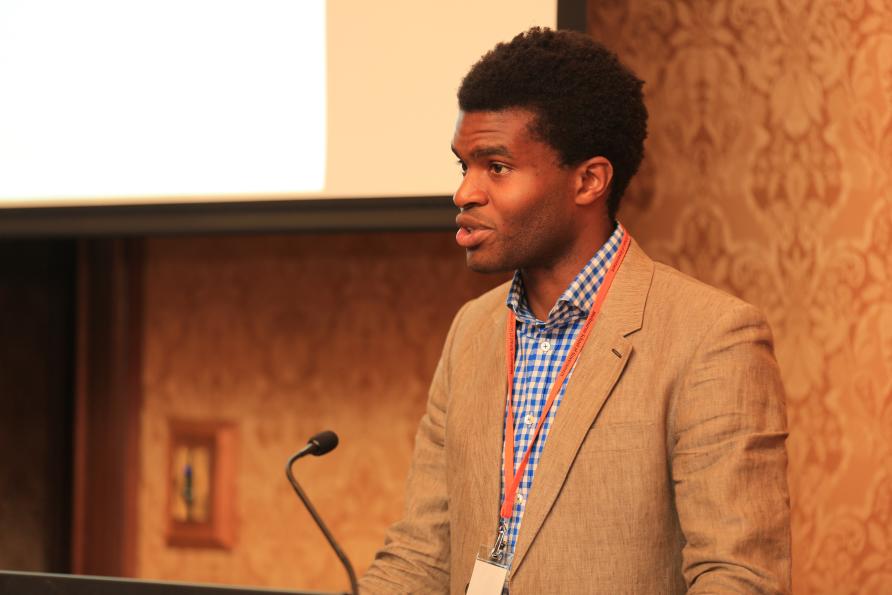
With regard to special interests and the media, Denis Muller, a former journalist now Senior Research Fellow at the Centre for Advanced Journalism, denied that journalists are members of a power elite. Muller conceded, however, that the 24-hour news cycle does tend to hype issues up and encourage quick political action by politicians to avoid perceptions of ministerial or governmental incompetence, which may not be helpful in all cases. On the flipside, sustained media attention to particular issues can help move issues up the government’s priority list. Finally, Muller observed that the media has proven to be most effective in influencing policies that directly relate to its own financial interests.
In sum the session discussed a range of views that challenged stereotypes of elite power, campaign money and the role of the media in public policy-making, demonstrating the value of a wide variety of inputs.
DEMOCRACY RE-CONNECTED: RE-IMAGINING PROCESSES OF ENGAGEMENT
Parallel Session: Democratic disconnect – are citizens really over democracy?
There is a need to break down assumptions about democratic participation, attendees heard today. This is particularly the case in relation to young people.
A theme emerging from the presentations was the different ways in which new forms of democratic participation are occurring. This was highlighted by Director of the Australia-India Institute, Craig Jeffrey, who told the story of Makar Singh.
Makar works as a social activist in India, coordinating a range of specific responses to problems in his village. Makar sees democratic politics in India as subtractive – everyone fights for their piece of the pie. But Makar believes that politics should create a bigger pie. He engages in democracy by embodying his political philosophies directly in his activism.

Akil Awan, Associate Professor in Modern History, Political Violence and Terrorism at the University of London, encouraged the audience to re-think the notion of radicalisation, arguing that the term is not bad in-and-of itself. Rather, throughout history, what were once considered “radical” ideas have often changed society for the better. Young people in particular are drawn to radical ideas for a range of reasons, including a crisis in identity, political disillusionment, or socio-economic inequality.
To negate the more violent expression of radical thought, there needs to be a restoration of young people’s political agency, and a need to show them alternative forms of engagement.
Indeed, a lack of understanding of different avenues for democratic engagement was highlighted by Valerie Sands, researcher with the Electoral Regulation Research Network. Dr Sands’ work (with Associate Professor of Management, Ken Coghill) demonstrated that many key local government stakeholders are simply unaware of how they can participate in democratic processes.
Dr Sands said, “many people in the focus groups did not know what a local government counsellor was”. While there are a number of opportunities for participation (i.e. travelling roadshows, council meetings, social media, etc.), these participatory mechanisms are not widely known. Because of this, there is a positive obligation on councils to consult with stakeholders regarding the particular ways they can participate.
Rather than there being a democratic disconnect, the first parallel session suggested that we are currently in the process of re-imagining democratic participation. This process must engage people, particularly young people, at the local level. But it is a process that is still in its infancy, and there is much work to be done.
Reporter: Martin Bortz
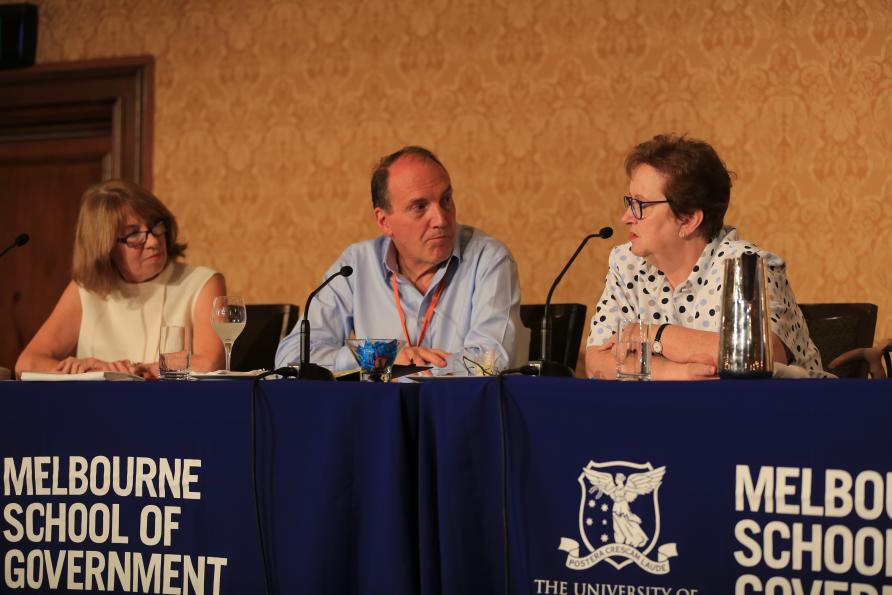
“ignore the pool of discontent at your peril”
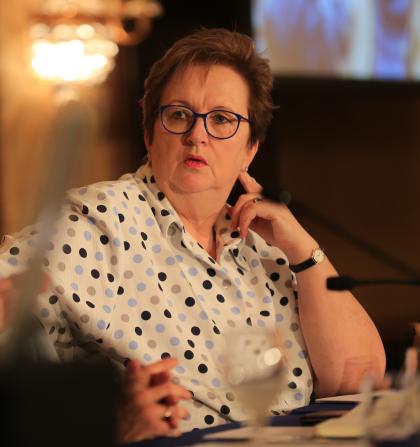
Question from audience member, Patrick Deneen from the University of Notre Dame: Does the media focus on the “lunacy” and “craziness” of figures like Donald Trump allow us to circumvent legitimate democratic worries like the source of his support?
Mr Hughes agrees. “Systems for choosing leaders are much more important than we think.”
“You ignore the pool of discontent at your peril,” Ms Vanstone says. Politicians are not listening enough to voters and what their concerns are. Politicians need to get better at communicating clearly to the public and explaining policies in plain English.
the impact of austerity
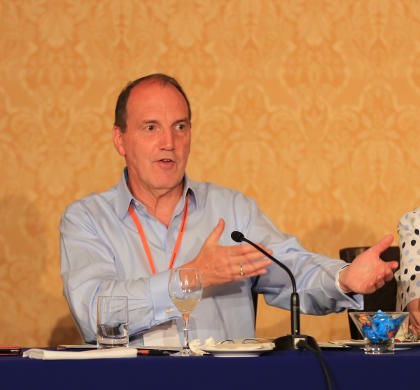
Simon Hughes says that anti-establishment sentiment is more likely in times of austerity. “If times are hard, people may think: ‘hang on a minute, we need something different,’” he says. When the economy is going well, people tend to be more satisfied with the establishment.
What is the future of centrist politics?
“In order to diminish the crazies on either end of the extreme, the people in the middle need to do a better job of selling the story they want to sell, and why democracy is a good system,” Vanstone says.
Ms Vanstone references the growing ambivalence among young people about the value of democracy. According to a 2014 Lowy Institute poll, just 42% of young Australians 18-29 years of age believe that “democracy is preferable to any other kind of government.”
Ms Vanstone says we need to explain to the public, especially younger Australians, why democracy is a good system - we forget to stand up for it.
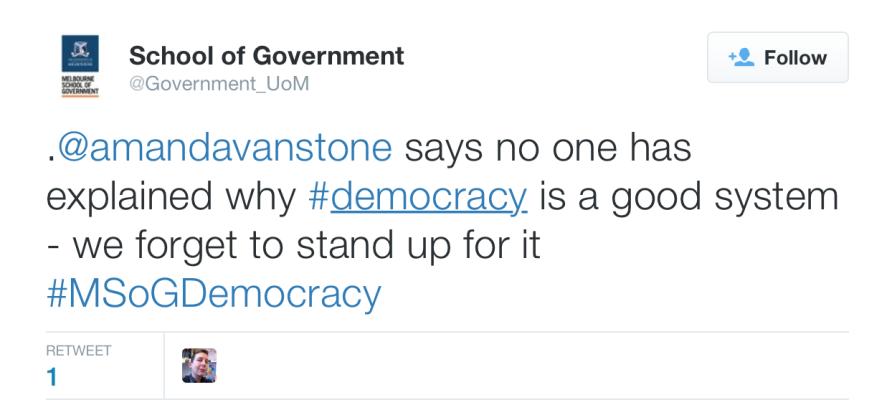
Defining a political "outsider"
Maxine McKew kicks off with an important question: Trump, Corbyn, LePen, Tsipras ... we call them “outsiders”, but is that the correct term?
Simon Hughes says many of these figures are not true outsiders. “They’ve been in the system and are getting credit for re-inventing themselves.” Jeremy Corbyn is perhaps one important exception: Corbyn has never been on the front bench, so he is an outsider in that sense.
Amanda Vanstone says that “they’re outside of what is considered to be the mainstream.” So long as citizens are unhappy with the mainstream political system, there will be a ready pool of voters who will throw their support behind “outsider” figures.
Political outsiders: Are we at the tea party with the mad hatter?
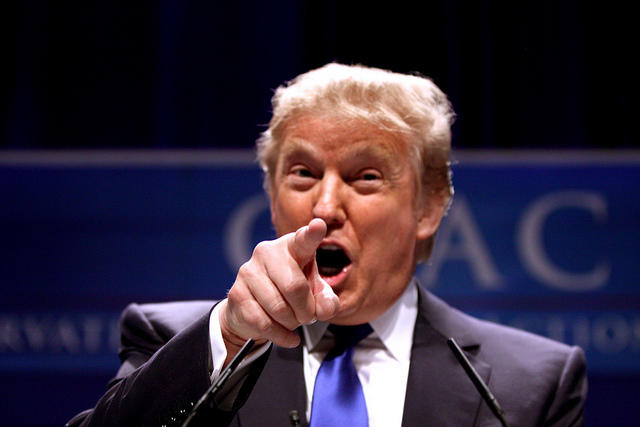
Donald Trump, Jeremy Corbyn, Marine Le Pen, Alexis Tsipras, Arvind Kejriwal…
Love them or hate them, leaders from outside the mainstream are enjoying a steep rise in advanced democracies. Are they a breath of fresh air, or a dangerous diversion? Could they be a product of deep-seated disillusionment with the two-party political mainstream, or a shallow fixation on personality?
In our Monday lunchtime plenary Simon Hughes, former Minister of State for Justice and Civil Liberties; Amanda Vanstone, former Federal Minister; and Maxine McKew, former Federal Parliamentary Secretary and senior ABC journalist will discuss the phenomenon of “political outsiders.” Are figures like Trump and Corbyn evidence of democracy’s strength…or a symptom of its failure?
Here’s what some others have said:
“Far from destroying our democracy, [Donald Trump] is exposing all its phoniness and corruption in ways as serious as he is not. And changing it in the process.” Frank Rich, New York Magazine.
“The success of anti-establishment candidates from both the left and the right has become a major phenomena in advanced democracies, and it is not clear how it is going to end.” Nicholas Reece, University of Melbourne.
“Anti-politician posturing by politicians borders on the frightening or the ridiculous. Like any complex job, being a politician should be something that we acknowledge gets better with a little practice and a lot of study.” Jeb Lund, The Guardian.
Let’s see what our panellists think. We’ll start our live coverage at 1pm (AEDT).
Don’t forget: you can have your say on Twitter using the hashtag #MSoGDemocracy.
John brumby: “our trust in democracy is under question”
This morning John Brumby spoke on 774 ABC Melbourne breakfast with Libbi Gorr, where he discussed key challenges for advanced liberal democracies in the 21st century, including declining levels of public trust in the political system. Listen to the interview here.
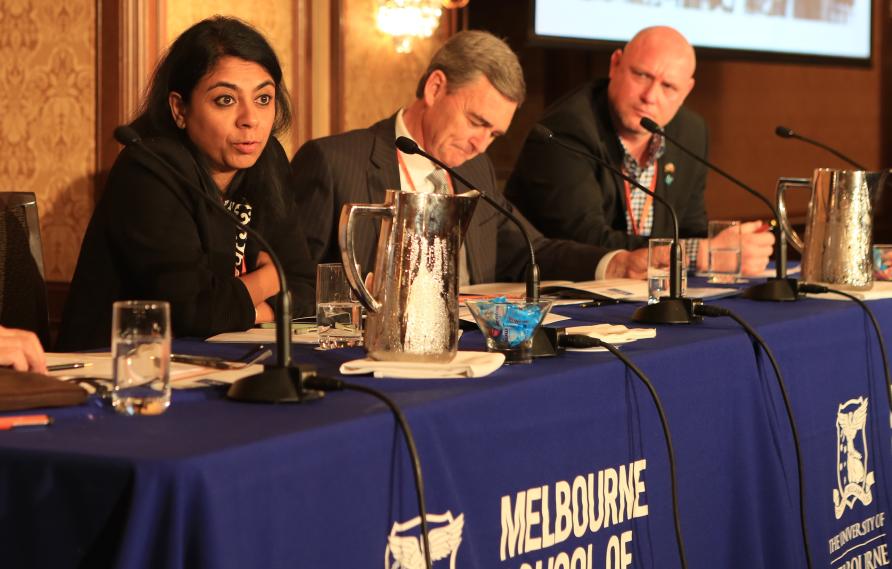
INDIGENOUS PARTICIPATION IN DEMOCRACY
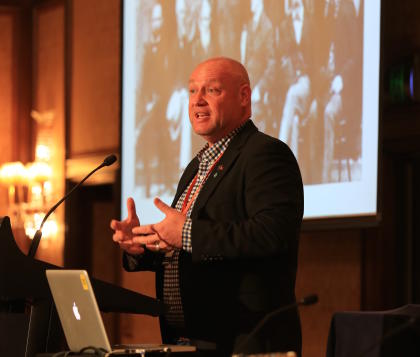
Dr Mark McMillan notes that democracy in Australia did not begin with the arrival of Westerners - and yet Australia’s democratic framework continues to deliberately exclude Indigenous Australians, stymieing their participation in the political process. Western institutional frameworks continue to impede Indigenous democratic structures to this day, but this should change. “Australia needs to recognise and integrate pre-existing Indigenous democracies,” he says.
McMillan says that recognising Indigenous ways of self-governing is important for democracy in Australia, but it is not the end of the story. Above all, our democratic ideals should be united by “a shared future that is inclusionary rather than exclusive.”
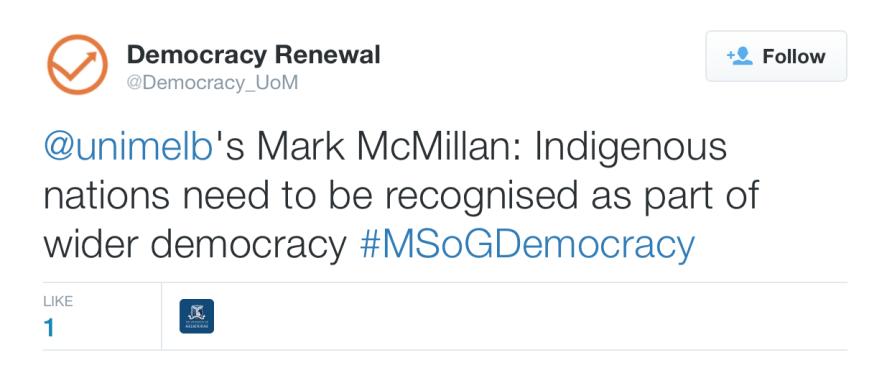
3 ways to reform democracy and restore trust
Brumby says there are three practical ways to restore trust in Australia’s democratic system. First, we need to reform our federation and recognise the benefits of federalism. Second, parliamentary reform is crucial, including reform to senate elections. He also advocates for changes to Question Time, which he says is an antiquated system that is more conducive of conflict and opposition, rather than informed and open debate.
“Question Time is a very old fashioned adversarial system...that adversarial system needs changing.”
Lastly, governments need to focus on improving standards of governance. “Governance standards are rising everywhere except government,” he says.
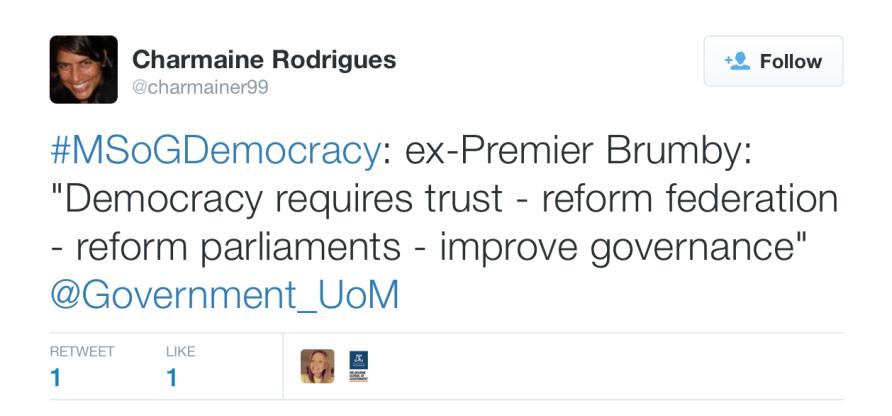
4 KEY CHALLENGES FOR DEMOCRACY
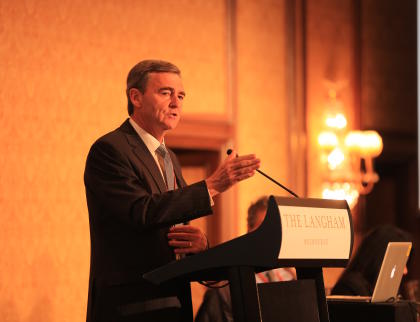
John Brumby describes what he regards as the four key challenges (or “wicked problems) for democracy in the 21st century:
- Geopolitical shifts (including the rise of China and the Chinese economy)
- The technological revolution (“By 2020 there will be more than 20 billion iOT connected devices around the world.”)
- Epidemiological challenges - particularly the increase in non-communicable diseases, which will put “more and more demand on health systems”
- Environmental sustainability and climate change
the view from india: why do people vote?
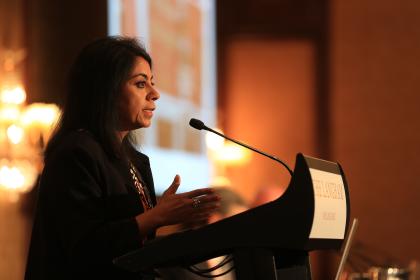
Speaking first is Mukulika Banerjee from the London School of Economics.
Banerjee paints a positive picture of electoral and political participation in India. Contrary for popular belief, poorer communities in India tend to be the most enthusiastic about voting and participating in the political process. For many, there is a “profound sense of duty” to exercise their right to vote. This has resulted in rising enthusiasm for elections across the country, with every election, including local ones, seeing higher voter turn-outs.
She notes that participation in elections becomes an important act in itself, where people from all walks of life convene to have their say on the future direction of their country: “Election campaigns in India are carnivals, the world turns upside down.”
21st century challenges for democracy
Good morning, all. Day 1 of the “Democracy in Transition” conference kicks off today! We’re looking forward to sharing today’s developments with you.
Our first plenary this morning brings together Dr Mukulika Banerjee from the London School of Economics, Dr Mark McMillan from the Melbourne Law School, and the Hon John Brumby, former Premier of Victoria and Professorial Fellow at the University of Melbourne.
The topic under discussion is the state of contemporary liberal democracy globally and the different challenges that have arisen for advanced Western liberal democracies as well as for newly-minted ones, where progress on instituting democratic rights has stalled.
From 9.30am (AEDT) we will be bringing you live updates. Watch this space.
6 Dec 2015
“Democracy in Transition” begins with PhD panel
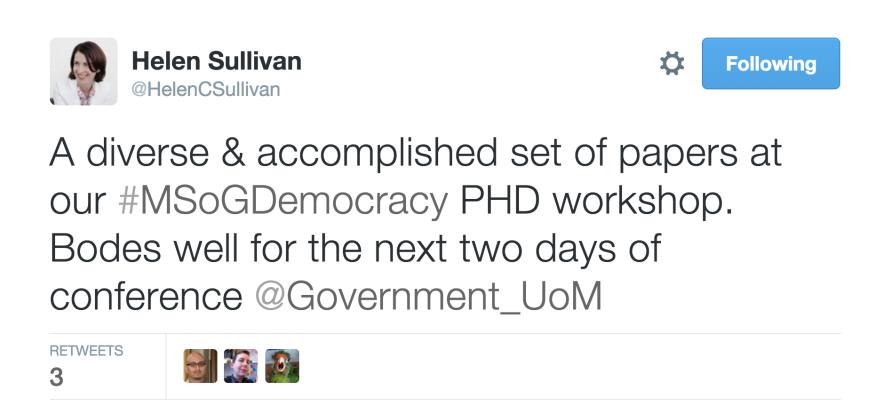
Good evening, everyone! We’re pleased to announce that the “Democracy in Transition” conference has kicked off this afternoon with a PhD panel at the Sidney Myer Asia Centre at the University of Melbourne.
Dr Tim Lynch, Director of the Graduate School of Humanities and Social Sciences, opened the panel, which set the stage for vigorous discussion through highlighting emerging academic research by University of Melbourne students. Seven doctoral researchers presented their work: James Field, Sophie Reid, Rachel Robinson, Rebecca Heatherington, Li-chia Lo, Young Sokphea and Or Avi Guy. Their topics of research included China’s experiments with deliberative democracy, the survival of Cambodia’s contemporary political regime, and power-sharing in Northern Ireland and Bosnia.
Between them, the students introduced diverse ways of exploring the transformations of ideals and practices within democratic societies, offering a strong preview of the issues imbued by democracy in transition.
Reporter: Luke Heemsbergen
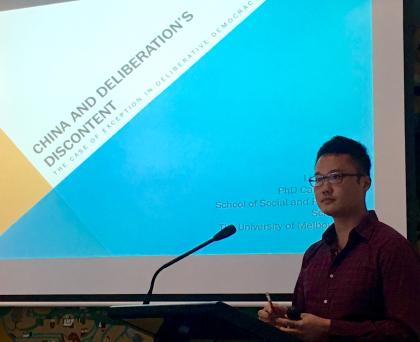
Come back tomorrow at 9am (AEDT) as we start Day 1 of the conference. It’s going to be a jam-packed 2 days. We look forward to sharing it with you.
4 Dec 2015
john brumby on the challenges of governing
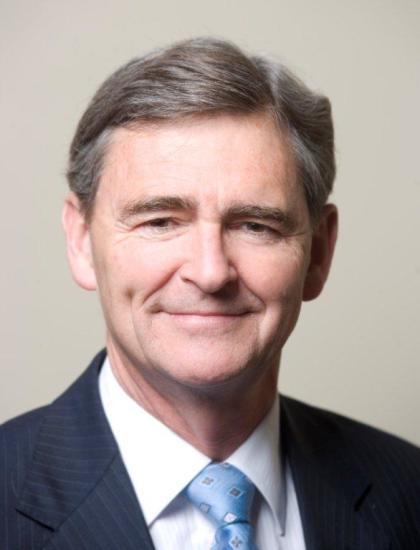
In an interview on RN Drive yesterday, former Premier of Victoria John Brumby said it is “very tough” to lead a government in modern politics. Citing various causes, including the rise of social media and the 24-hour media environment, as well as the decline of public trust in the political process, he said governments have a much harder time today, compared to the period when he was Premier.
On Monday, Mr Brumby, who is a keynote speaker at our Democracy in Transition conference, will discuss the 21st century challenges for democracy with Dr Mukulika Banerjee of the London School of Economics and Dr Mark McMillan of the Melbourne Law School. For full coverage of this panel discussion, tune in to this blog at 9am (AEDT) on Monday next week.
welcome!
Welcome to the official blog for the "Democracy in Transition” conference (6-8 December, 2015), hosted by the Melbourne School of Government at the University of Melbourne.
Our team of dedicated bloggers will bring you all the latest developments from the conference, where public sector, non-profit, industry and academic change-makers will get together to debate and discuss the challenges and opportunities facing democracies around the world.
We will go live from Sunday, December 6th.
That’s only two sleeps away! Stay tuned...